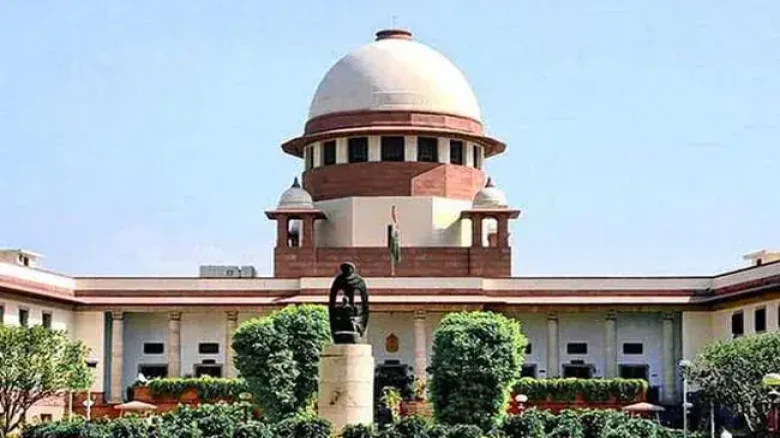National
Digital Desk : Former Prime Minister of India Dr. Manmohan Singh breathed his last on December 26 at the age of 92. Dr. Singh was taken to the All India Institute of Medical Sciences (AIIMS) on Thursday night after

If any fresh cases are filed, those charged can approach the court. "The Union of India is at liberty to pass directives to states to prevent misuse of the law," the Chief Justice added.
Digital Desk: The controversial sedition law will be paused while the government reviews it, the Supreme Court said today in a milestone order that impacts hundreds charged under the colonial-era relic. Those jailed for sedition can approach the courts for bail.
Some points to be highlighted are as follows:
1) As per the order, no new FIRs will be filed for sedition and all pending cases will be on hold while the government reconsiders the law, the Supreme Court said, pertaining to petitions that challenged the law, alleging its misuse in cases like in Maharashtra, where it had been invoked over the chanting of the Hanuman Chalisa.
2) "It is obvious that the Centre agrees that the rigours of (sedition) are not in tune with the present situation.” It will be prudent to not invoke this statutory provision until the re-examination process is completed. We hope and expect that the centre and state will desist from registering an FIR under 124 a (sedition law) or initiating a proceeding under an equivalent till the re-examination is over, "said Chief Justice NV Ramana.
3) If any fresh cases are filed, those charged can approach the court. "The Union of India is at liberty to pass directives to states to prevent misuse of the law," the Chief Justice added.
4) In a sharp reaction, Union Law Minister Kiren Rijiju said: "We respect each other; the court should respect the government, and the legislature and the government should also respect the court." We have a clear demarcation of the boundary which Lakshman Rekha should not be crossed by anybody. "
5) On Monday, the government, during a major turnaround, announced its decision to review the sedition law that was once used against Gandhi and Lokmanya Bal Gangadhar Tilak by the British. The law allows arrest without a warrant if an individual is accused of anti-government activities.
6) The government argued today that while it reviews the law, it should not be paused. For now, it suggested, a police officer of the level of the superintendent or above could decide whether a sedition charge should be filed.
7) "There has got to be a layer of scrutiny, where a responsible officer is there to scrutinize the gravity of things and there, of course, would be judicial forums," the Centre's lawyer, Solicitor General Tushar Mehta, said, adding that a law cannot stay on the basis of a PIL (Public Interest Litigation).
8) The Government said that the pending cases were already before the courts and should be decided by them. "We do not know the gravity of offences pan-India. There could be also other terrorism charges too in these cases. These pending cases are not before the police or government. But they are before the court. So, we should always not guess the wisdom of the courts," Mehta said.
9) Petitioners opposed the government's stand and urged the court to pause the sedition law until the government's review of the colonial-era legislation is over. To which the lawman said: "We cannot undermine respect for the judiciary of the country."
10) Senior lawyer Kapil Sibal, representing the petitioners, said there have been over 800 cases of sedition across India and 13,000 people were in jail.
Leave A Comment